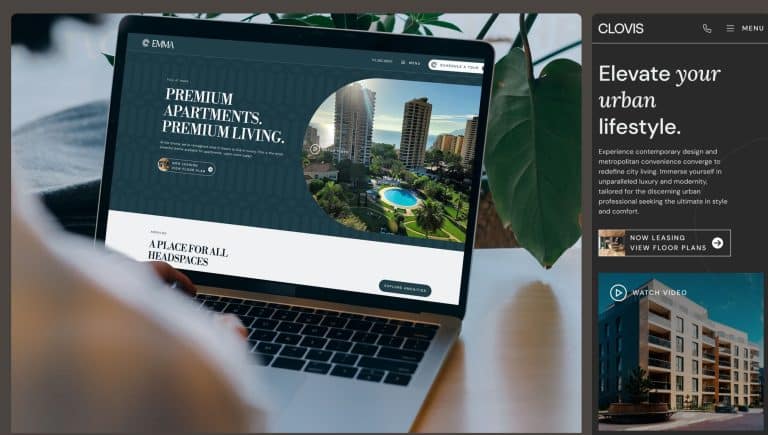7 Proven Tactics for Crafting an Effective Lease Renewal Reminder Letter
How to maintain occupancy by sending a lease renewal letter as the end of a tenant’s lease approaches.

When you manage a rental property, your primary goal is to have every unit occupied at all times.
Empty units don’t pay the bills or earn revenue. So it’s important to fill every available apartment with a responsible tenant that does two things:
Makes rent payments on time.
Abides by the terms of their lease.
When you find those tenants, you should try to keep them — and you can do so by sending a lease renewal letter as the end of a tenant’s lease approaches. A successful lease renewal notice can encourage and entice a tenant to renew their lease rather than move to a new apartment.
Not sure how to write one or what information to include?
Below are seven proven tactics for crafting an effective lease renewal reminder letter and getting good tenants to stay put.
Tenant Retention is Everything

If you work in property management, you know that finding a new tenant takes time and money. Leasing an apartment is no easy feat, and there are several steps involved.
This process most often begins with a move-out walkthrough with the old tenant.
Then, it’s standard to do the following (among other things) for the vacant unit:
- Clean
- Paint
- Make repairs
- Market the listing
Once you find some interested renters, the typical next step is to vet those potential tenants and conduct apartment tours. And when you do find someone that seems like the right fit, it’s normal to run a credit check, complete a background check, and prepare the lease.
We could go on and on …
Every week that goes by that you have a vacancy in your building, you’re losing money.
With a focus on tenant retention, you won’t have to do any of these things.
If you can keep a tenant, you won’t need to worry about having an empty unit for a month, two months, or however long it takes you to find a new renter.
Effective property management begins with an A+ leasing consultant. Check out the 15 Essential Questions to Ask Before Hiring.
Only Allow Good Tenants To Sign a New Lease
Retaining good tenants is key to keeping units full, bringing in consistent revenue, and saving the trouble of finding a new renter.
But trying to keep a bad tenant is one of the biggest mistakes you can make.
A “good” tenant is one who always pays their rent on time, follows the property’s rules, doesn’t disturb neighbors, and treats your real estate with respect.
A “bad” tenant is someone who does the exact opposite, someone with whom you may want to begin the eviction process rather than encourage them to stay.
The landlord-tenant relationship is like any other business partnership — some are good, and some are terrible. If you have a problem tenant that you’d like to see move out, do not send them a lease renewal letter.
Send them a lease expiration letter instead.
How To Create an Effective Lease Renewal Reminder Letter
Every lease renewal needs seven things to encourage good tenants to stay.
Want to save yourself even more time?
Create a renewal letter template.
Then, every time a good tenant approaches the end of their lease, plug in the specifics and drop copies in their mailbox and inbox. Or you can use our template attached below and just fill in the details for your complex!
Follow these rules when creating your renewal letters:
1. Be Friendly
There’s not a tenant on earth willing to fork over rent to a landlord that doesn’t treat them in a friendly, courteous, and respectful manner.
When crafting a lease renewal reminder letter, write with a friendly tone but keep it professional.
Let the tenant know that you value them. Tell them that you’d love for them to stay on. Provide them with plenty of options and incentives to make them want to continue leasing with you.
Your letter should start with a friendly greeting and include some basic information. For example, the date the current rental agreement ends and when the tenant should sign a renewal agreement.
2. Give the Tenant Options
Tenants love options.
In fact, there’s a good chance they weighed quite a few of them when they moved into your apartment in the first place. So if you want them to stick around, give them some choices in lease length and rental rates.
Allow your tenants the option to extend their current lease by six months at the current price.
Offer them the option to renew for twelve months at a lower price.
Give them a choice to sign a 24-month lease agreement for an even steeper discount.
The goal is to get them to stay as long as possible. So offering a small discount for an extended lease period may encourage your tenant to sign on for a lengthier stay.
Did your original lease agreement allow the tenant to take on a month-to-month lease when the original lease ends? Then, mention that the rent amount is always subject to increase.
Why?
Because knowing that rent could be higher next month could make the difference between a tenant moving to a month-to-month agreement or deciding to sign another six-month or one-year lease.
Month-to-month leases are great for tenants but not ideal for landlords. Depending on your region and rental market, you might even want to lock in a month-to-month rate for a short period.
Again, this isn’t the ideal scenario, but it’s better than losing a tenant in an off-peak time of year when it’s challenging to find new renters to move in.
3. Provide Incentives

Offering reduced rates for longer leases is a proven tactic. But it’s only one of several incentives that you can provide. We’ve seen property managers get pretty creative with incentives to get a good tenant to stay.
For instance, you can distribute gift cards and offer one month’s rent at a steep discount.
One effective incentive that tenants love is the concept of stable rent. Informing the tenant that there will be no rent increase for the duration of the new lease is a great way to encourage them to want to stay.
You can also entice tenants to stay with the promise of apartment upgrades, such as new paint or new appliances.
You can limit these to renovations that you would have to do anyway if the old tenant moved out and a new one moved in. The longer your tenant has lived in the same unit, the more likely the thought of fresh paint, new lighting fixtures, or a new dishwasher will excite them.
Looking to incentivize a tenant that you know is growing their family or needs more space?
If you have a larger or more updated unit vacant, you may even want to offer the tenant the option to move to a different unit in the same building or complex.
4. Assume That They’re Going to Renew
Most people do not enjoy moving, and most tenants would rather stay where they’re already comfortable than have to look for a new place.
Regardless of how low or high your rental rates are, no one enjoys shelling out all those up-front fees. Security deposits, first month’s rent, and last month’s rent will all add up.
When you craft your lease renewal letter, don’t take the hard sell approach and run the risk of turning people off.
Try to keep it simple, factual, and to the point.
When you provide a tenant with a written notice for renewal, be sure to include the expiration date of the current lease.
Also, be clear about the deadline for signing a new lease or giving notice to move out. This tidbit is beneficial to both parties involved, and a looming deadline may be enough to encourage the tenant to stay.
5. Let Them Know About Any Changes to the Lease
Let your tenants know upfront if there will be any changes to the terms of the lease, building rules, parking rules, or other community policies. Most tenants will expect their renewal terms to be the same as those in their existing lease, so make it clear if changes are on the horizon.
Don’t surprise your tenants with this new information when you present them with a new lease. And if the latest change is a rent increase, you should be 100% upfront about that.
For tenants who like to do their due diligence, including a copy of the existing lease, along with a copy of the new one can be pretty helpful. This way, they can compare and contrast the terms to make a more informed decision.
The good tenants that you want to keep will appreciate this transparency!
6. Tell Them About Upgrades
Planning to install a new pool?
Build a dog park?
Upgrade the common areas?
Put in a new gym?
If you’re planning on making upgrades and improvements to the property, let your tenants know. Any positive changes you make may entice them to stay and even convince them to agree to pay more in rent.
7. Include Move Out Reminders
No matter how much a renter loves living in your apartment complex, you can be sure that you’ll have a few good tenants who are ready to move out and move on.
However, have realistic expectations and know that you’ll never be able to convince every current tenant to sign a new lease.
But you may be able to persuade some of them to stay with a subtle reminder of all the things they’ll need to do before moving to a new place.
Including a move-out checklist is both informative and overwhelming.
Reminding your tenants that they’ll have to do the following may be all it takes to get them to renew their lease with you:
- Gather packing supplies, such as boxes and tape
- Find a moving company and schedule a moving date
- Schedule a move-out and move-in with building management
- Cancel or transfer all utilities to your new address
- Change your address with all credit cards, banks, and subscription services
Download our Lease Renewal Reminder Letter here. Select File and Make a Copy.
Moving out of one apartment and moving into another comes with a hefty to-do list. Reminding your tenants of those steps may encourage them to renew for the sake of not having to go through all that work.
Read More: 13 Unique Ways to Boost Your Resident Retention
When Should You Send a Tenant a Lease Renewal Reminder Letter?

Every city and state has its own landlord-tenant laws.
But most property managers send lease renewal reminder letters about 90 days in advance, which is a reasonable amount of advance notice. And it should give the tenant plenty of time to start weighing the pros and cons of staying put or finding a new place to live.
Send your first notice 90 days in advance of the lease end date.
If you don’t hear back from the tenant, send a follow-up reminder about 60 days prior. If need be, send a final reminder 30 days before the end of the lease and inform your tenant they must give you notice before they leave.
Most leases require 30 days’ notice to vacate anyway, so don’t forget to remind your tenants of that!
If a tenant ignores your letters and emails, follow up with a phone call. It may be that they’re 100% planning to stay but don’t understand the urgency of signing a new lease agreement.
Want to fill vacant units with the right tenants? Read The Beginner’s Guide to Running a Successful Apartment Open House.
Keeping a great tenant in an apartment unit is always easier than finding a new one.
With a well-constructed lease renewal reminder letter, you can encourage a tenant to stay by being friendly, giving them options, and providing incentives.
Be straightforward, upfront, and transparent in your communication. If you intend to increase rent or change rental terms, make it known from the start.
And don’t underestimate the power of a face-to-face conversation.
Of course, you should send a lease renewal letter to all good tenants. But for those you have a personal relationship with, a simple in-person reminder may be all it takes to get them to stick around.
Filling your units with good tenants requires you to find the right tenants first.
With the LeaseLeads on your website, you can match prospective tenants with a floor plan within their budget, offer virtual tours, and double your leads. The more leads you receive, the more selective you can be when renting.
Schedule a demo today!






